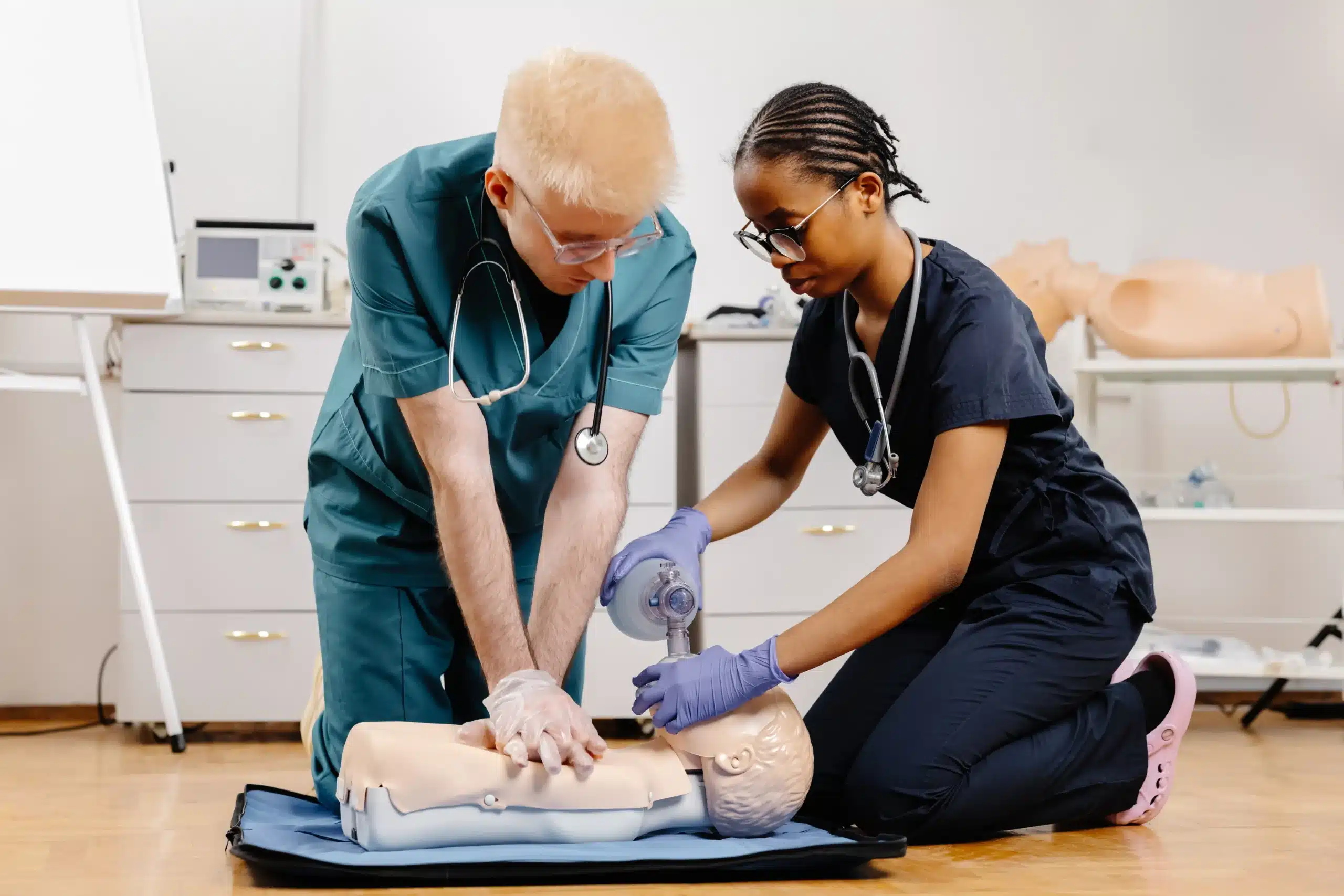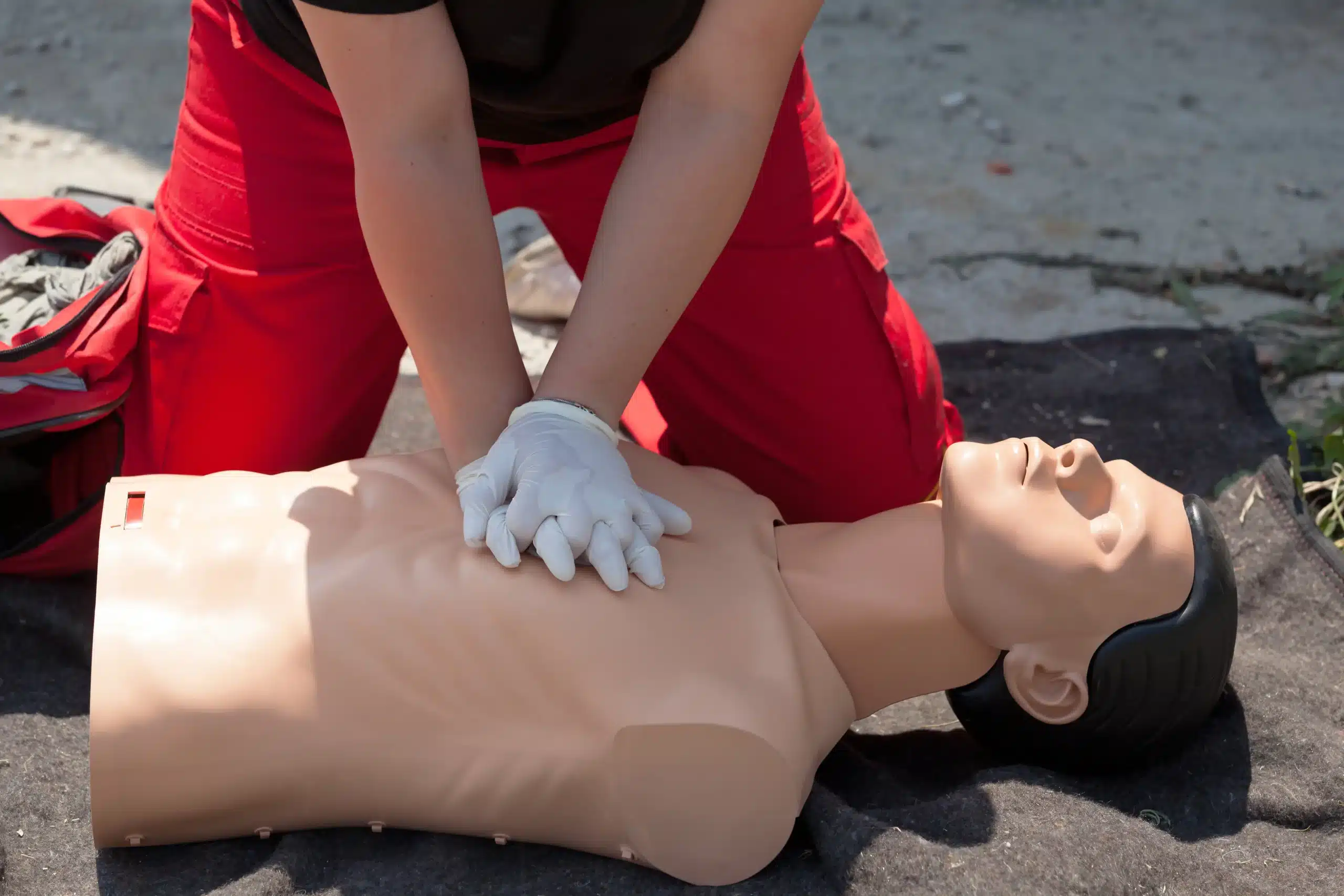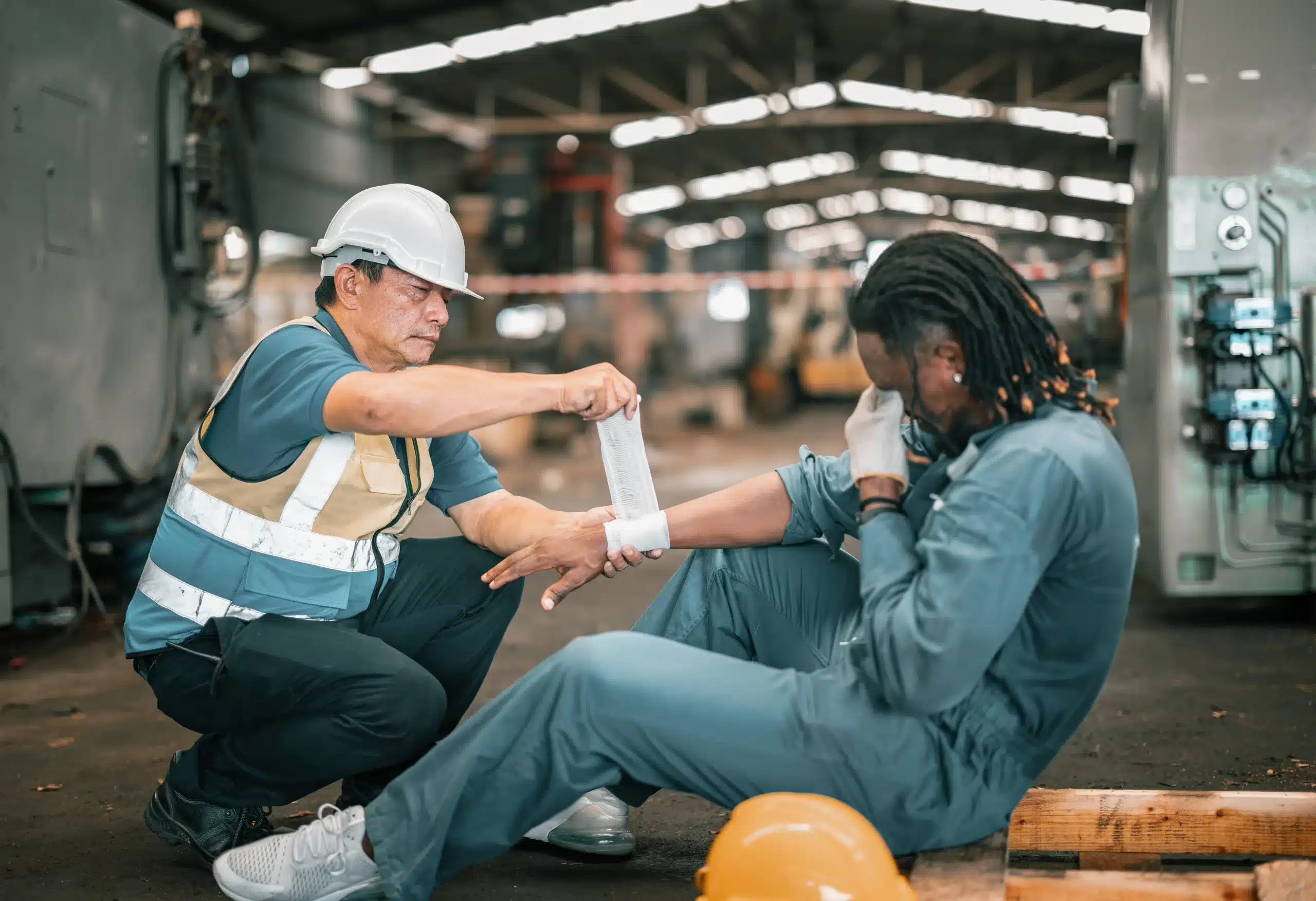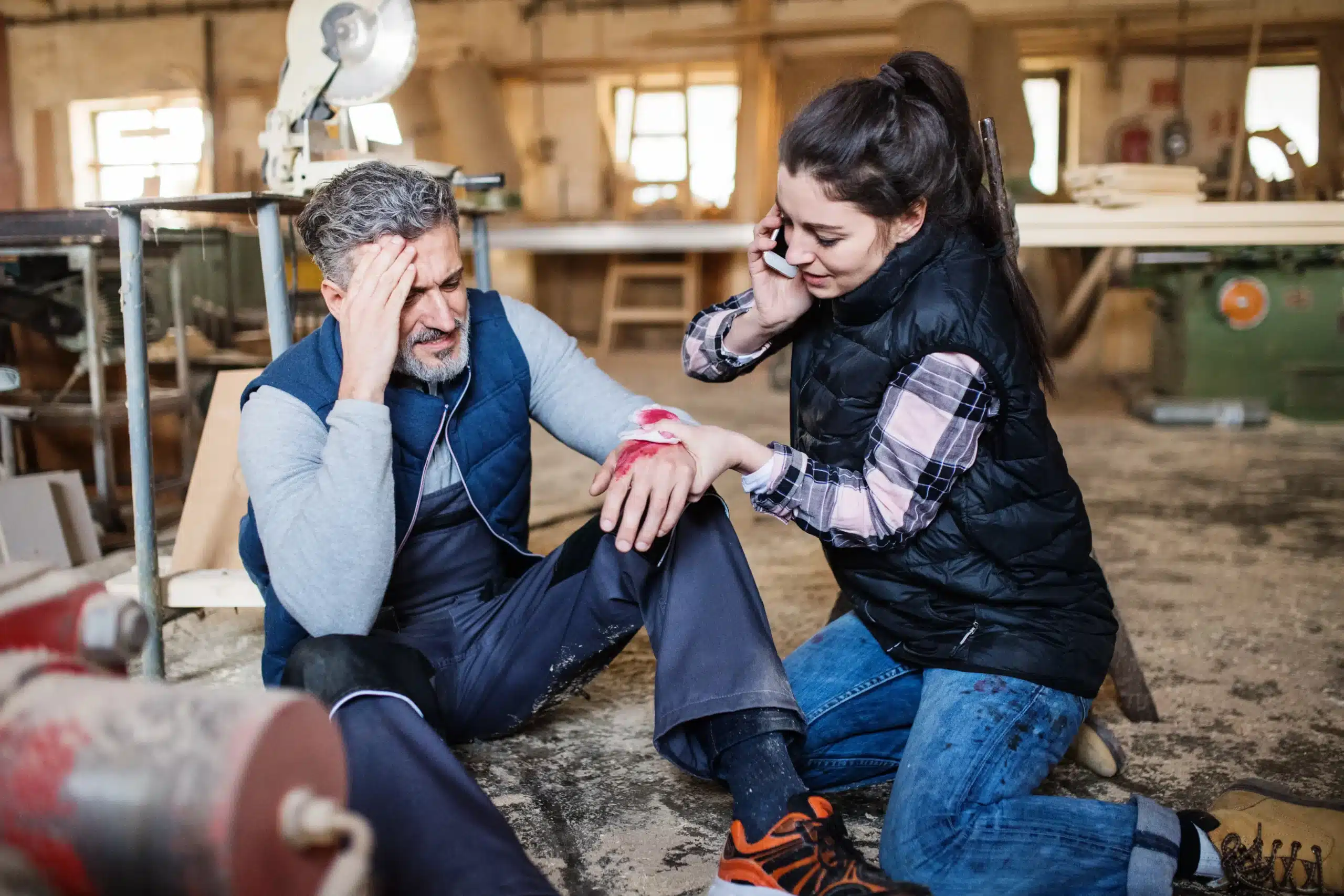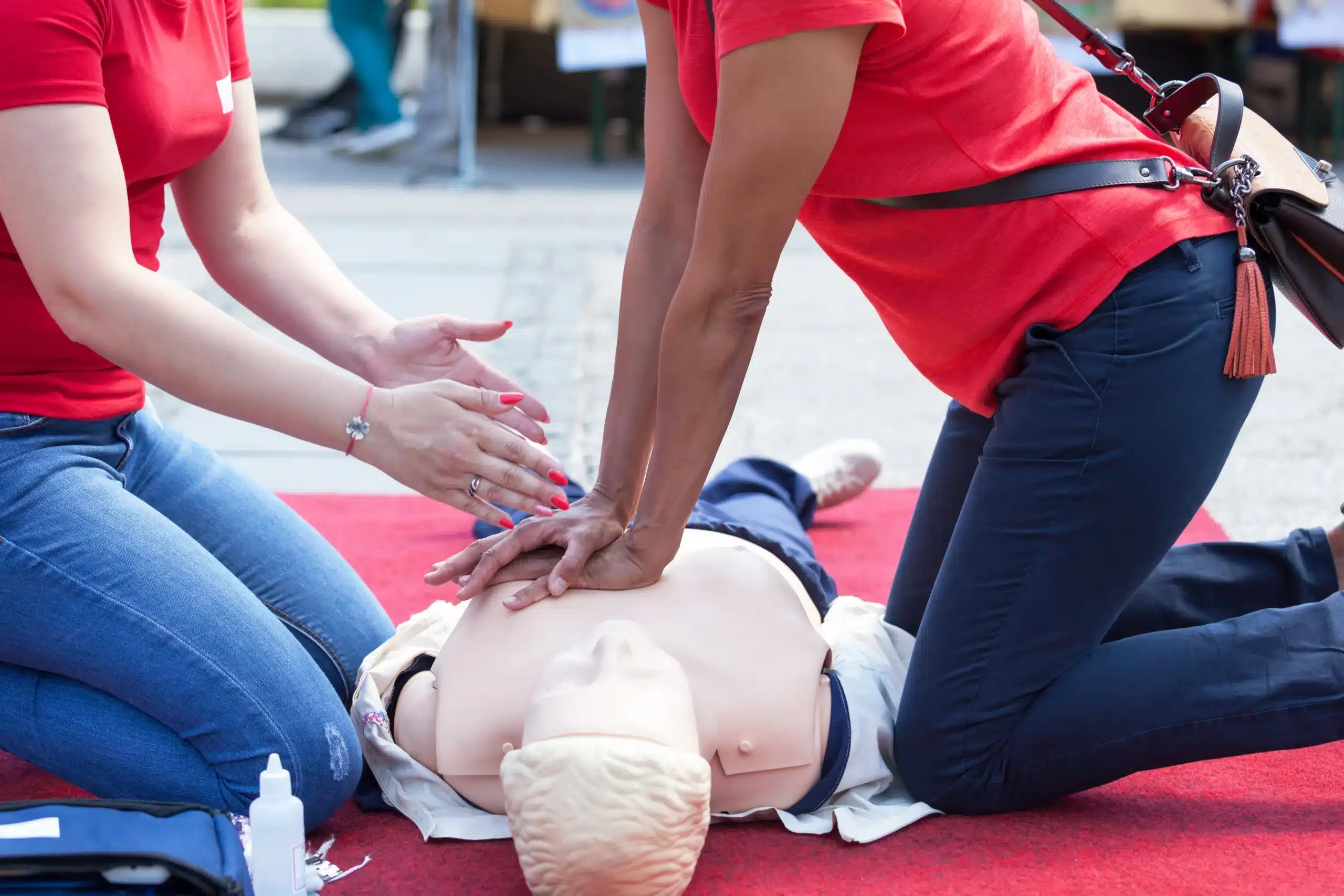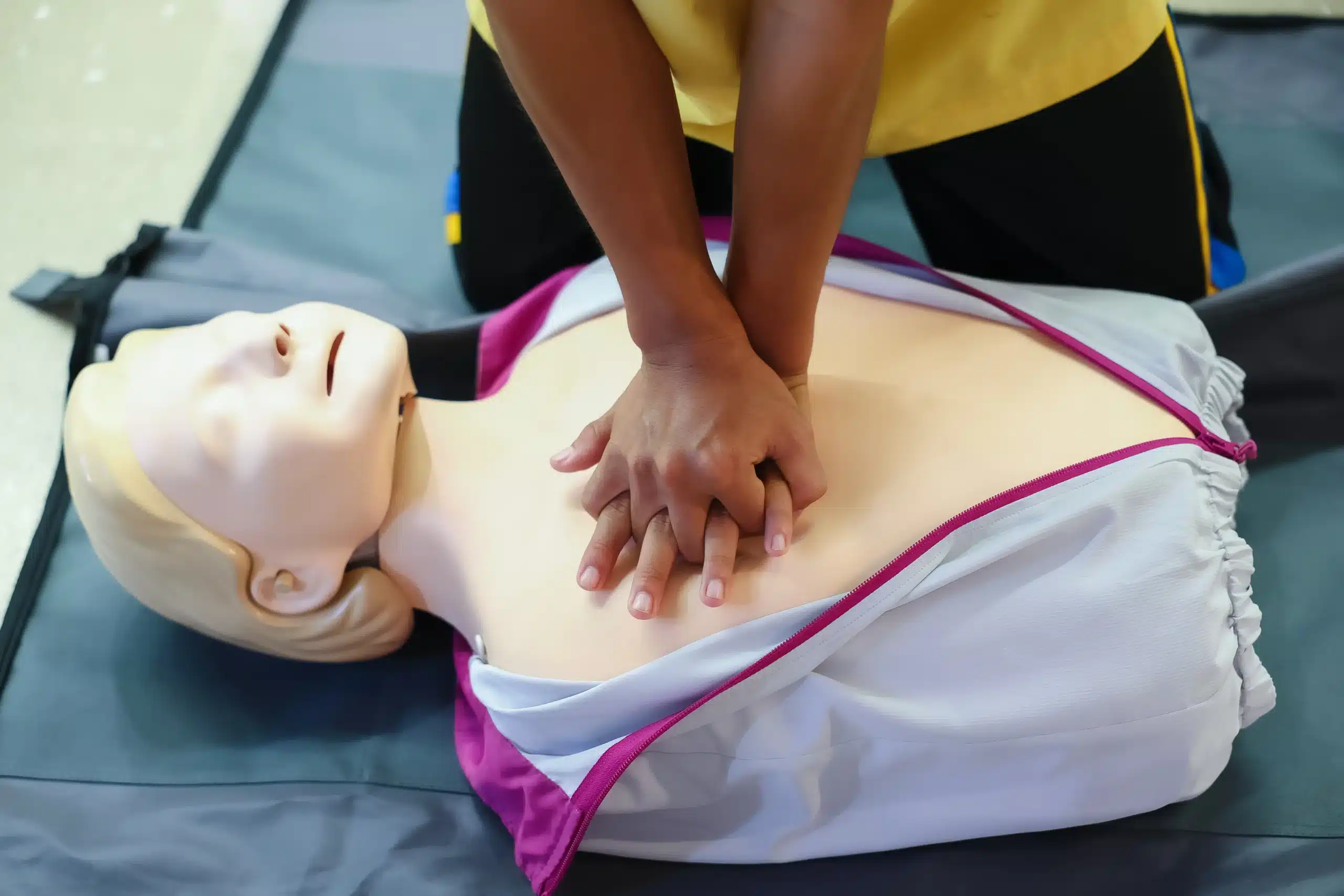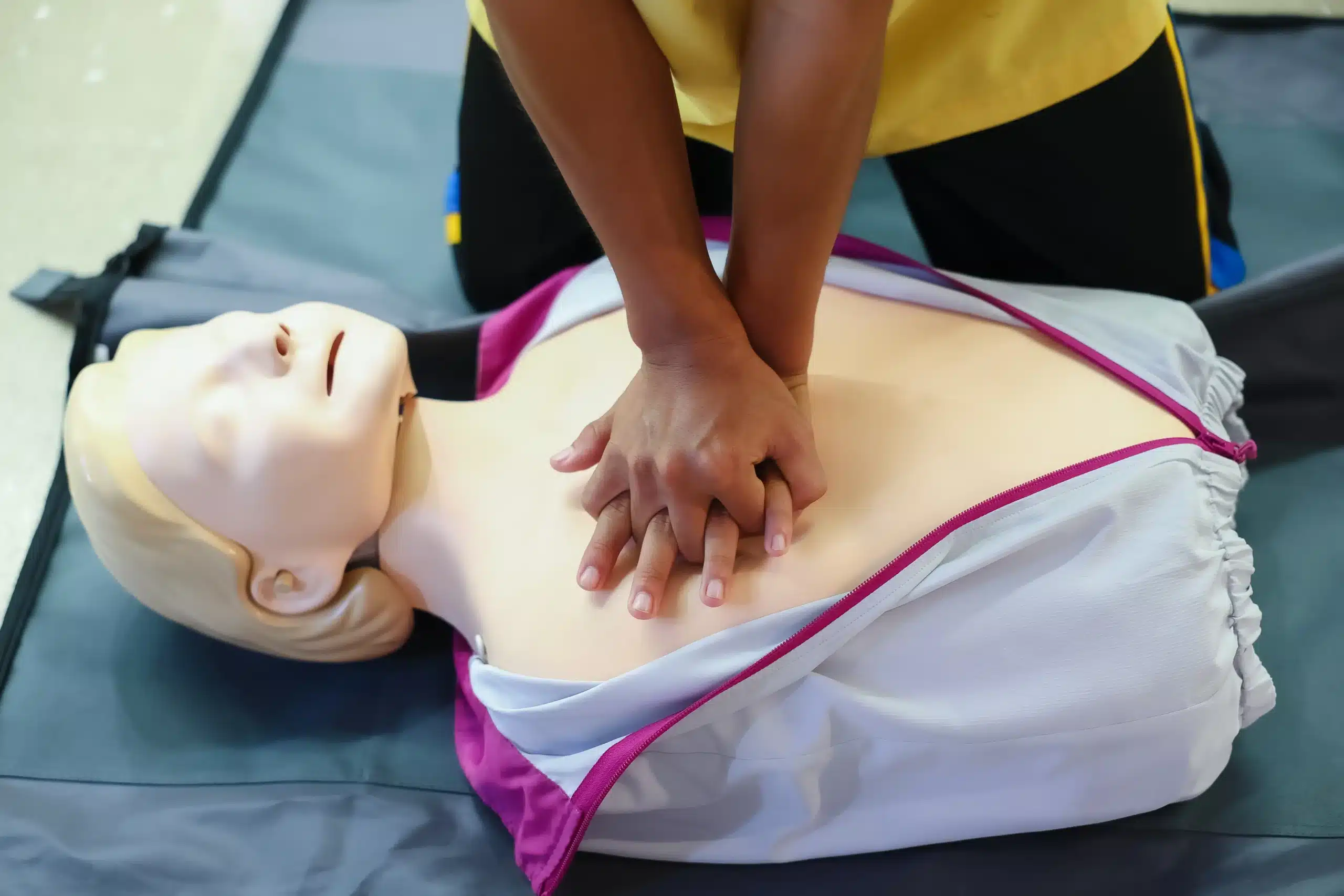Emergencies happen, and knowing how to respond can save a life. CPR and first-aid training in San Jose provides you with the skills and confidence to act quickly and effectively in critical situations. This guide explores the various CPR and first-aid training options available in San Jose, catering to different needs and schedules. From understanding the different certification levels to finding reputable training providers and managing costs, we’ll cover everything you need to know to get certified and be prepared.
Key Takeaways
- CPR and First Aid skills empower you to respond to emergencies: Learn essential lifesaving techniques, from CPR and AED use to managing injuries, and gain the confidence to act quickly when every second counts. Find a course that suits your needs, whether you’re a healthcare professional, a parent, or simply want to be prepared.
- Find the right course format and provider: Explore options like in-person training, online learning, or blended learning, combining online modules with hands-on practice. Choose a reputable provider with certified instructors and accredited courses, such as Safety Training Seminars or the American Red Cross.
- Stay current with your certifications: Most CPR and First Aid certifications are valid for two years. Maintain your skills and knowledge by taking recertification courses and practicing regularly. This ensures you’re always prepared to provide effective assistance in an emergency.
What is CPR and First Aid Training in San Jose?
CPR (Cardiopulmonary Resuscitation) is a lifesaving technique used in emergencies when someone’s breathing or heartbeat has stopped. It involves chest compressions and rescue breaths to circulate oxygenated blood to the brain and other vital organs until professional medical help arrives. First aid encompasses the initial assistance given to someone experiencing a sudden illness or injury. This can range from treating minor cuts and burns to managing more serious conditions like choking or a broken bone.
CPR and First Aid training courses in San Jose equip you with the skills to respond effectively in these critical situations. You’ll learn how to assess an emergency, perform CPR, use an AED (Automated External Defibrillator), and administer basic first aid for various injuries. These courses cover essential techniques and provide the confidence to act quickly and efficiently when every second counts. Training programs in San Jose offer both theoretical knowledge and practical, hands-on skills, ensuring you’re well-prepared to handle real-life emergencies. Learn more about our RQI program.
Various organizations in San Jose offer CPR and First Aid training, including the American Heart Association and the American Red Cross. These courses are tailored to meet the needs of different audiences, from healthcare professionals requiring specific certifications like BLS (Basic Life Support), ACLS (Advanced Cardiovascular Life Support), and PALS (Pediatric Advanced Life Support) to everyday people wanting to learn essential lifesaving skills. Check out our low price guarantee. Many courses offer certification upon completion, which may be required for certain jobs or volunteer positions. And if you’re a childcare provider in California, we offer courses on EMSA Health, Safety, and Lead Poisoning. Even if certification isn’t a requirement, the skills you gain can make a profound difference in someone’s life. Find BLS courses in San Jose (Willow Glen).
Find the Right CPR and First Aid Course
Finding the right CPR and First Aid course can feel overwhelming, but it doesn’t have to be. Think about your specific needs, schedule, and learning style. Here’s a breakdown of the different types of training available in San Jose:
In-Person Training
In-person training offers hands-on learning and direct interaction with an instructor. This format allows you to practice skills in a controlled environment and ask questions in real-time. If you learn best through direct interaction and appreciate the structure of a classroom setting, in-person training might be a good fit. Safety Training Seminars offers a range of AHA-certified courses, including BLS, ACLS, PALS, and First Aid. The American Red Cross also provides various CPR and First Aid classes in San Jose.
Online and Blended Learning
For those with busy schedules or who prefer learning at their own pace, online and blended learning options provide flexibility. Online courses often involve self-paced modules, videos, and interactive exercises. Blended learning combines online coursework with in-person skills sessions, offering a balance of independent study and hands-on practice. This can be a great way to fit training into a packed schedule. This guide on first aid training offers more information on blended learning and online options.
Specialized Courses for Healthcare Professionals
Healthcare providers often require specialized training and certifications. These courses cover advanced life support techniques and are designed to meet the specific needs of medical professionals. Safety Training Seminars offers advanced certifications, including BLS, ACLS, and PALS renewals, and the American Heart Association’s RQI program. Other providers, such as the Emergency and Health Training Center, also offer BLS, ACLS, and PALS certifications in San Jose. Make sure to research the specific requirements for your profession to find the right course.
Understand CPR and First Aid Class Costs
CPR and first aid training costs in San Jose vary depending on the course type, format (in-person vs. online), and the training provider. While cost is a factor, prioritize finding a reputable provider offering high-quality instruction. A solid understanding of pricing helps you budget effectively and choose the best course for your needs. Safety Training Seminars offers a low price guarantee to ensure you’re getting the best value for your training.
BLS Course Pricing
Basic Life Support (BLS) certification is crucial for healthcare providers and anyone responding to life-threatening emergencies. BLS courses cover essential techniques like CPR, AED use, and relief of choking. In San Jose, BLS certification courses typically range from $75 to $100. Factors influencing price include the training provider, course format (online, blended, or in-person), and any included materials.
ACLS Course Fees
Advanced Cardiovascular Life Support (ACLS) training builds upon BLS skills, focusing on advanced interventions for respiratory and cardiovascular emergencies. This certification is vital for healthcare professionals working in critical care settings. ACLS certification generally costs between $150 and $250. The price difference often reflects the provider, course materials, and the inclusion of any supplementary resources.
PALS Training Costs
Pediatric Advanced Life Support (PALS) certification equips healthcare providers with the specialized knowledge and skills to manage pediatric emergencies. These courses cover resuscitation and stabilization techniques specific to infants and children. PALS training costs are comparable to ACLS, usually falling within the $150 to $250 range. The specific price, as with other courses, depends on the training center and the resources included. For more information on PALS and other courses, visit the Safety Training Seminars website.
Group and Corporate Discounts
Many training providers, including Safety Training Seminars, offer discounts for group and corporate bookings. This can be a cost-effective solution for businesses wanting to train multiple employees simultaneously. Contact providers directly to inquire about group discounts and tailor a training program to your organization’s specific needs. You can explore various CPR and first aid training options in San Jose to find the best fit for your team.
Get Certified and Stay Certified
Getting your CPR and first aid certification is the first step. Staying current with your certifications is just as important. This section covers everything you need to know about getting certified and maintaining your credentials.
How to Get Certified
Finding the right CPR and first aid certification course in San Jose is straightforward. Safety Training Seminars offers a range of AHA-certified courses, including BLS, ACLS, PALS, and First Aid. You can also find certification courses through organizations like the American Red Cross, which offer various options, including in-person classes and blended learning (a combination of online coursework and in-person skills sessions). When choosing a provider, consider factors like location, schedule, and course format to find the best fit.
How Long is Certification Valid?
Most CPR and first aid certifications are valid for two years. Keeping track of your certification expiration date is crucial. Set a reminder a few months before your certification expires to give yourself plenty of time to recertify.
Recertification Options
Staying current with your certifications is easy with the many recertification courses available in San Jose. Safety Training Seminars offers convenient renewal courses for certifications like BLS, ACLS, and PALS. For healthcare providers, the RQI program offers a flexible way to maintain your BLS skills. The Red Cross also provides renewal classes throughout the year. Just like when you first got certified, consider factors like location, schedule, and any refresher training you might want when selecting a recertification course.
Top CPR and First Aid Training Providers in San Jose
Finding the right CPR and First Aid training provider is key to getting high-quality instruction. Here’s a look at some well-known options in San Jose:
Safety Training Seminars
Safety Training Seminars, an AHA Training Center, offers a wide range of courses. They cover everything from basic CPR and First Aid to advanced certifications like BLS, ACLS, and PALS. Healthcare professionals looking for a flexible renewal option can also find the American Heart Association’s RQI program here. Conveniently located in San Jose, they serve surrounding areas like Santa Clara and Sunnyvale. Check their website for course schedules and locations. They also offer a low price guarantee.
American Red Cross
The American Red Cross is a familiar name in CPR and First Aid training. They offer a variety of courses, including pediatric CPR and First Aid—a good option for parents, caregivers, and childcare providers. The Red Cross provides both in-person classes and blended learning, so you can pick the format that works best for you. Explore their course catalog and register online.
American Heart Association
The American Heart Association sets the standards for CPR and ECC guidelines. While they don’t directly run training courses, many authorized training centers, like Safety Training Seminars, offer AHA-certified courses. This ensures your training follows the latest medical practices and recommendations.
San Jose Fire Department
The San Jose Fire Department is a vital resource for community health and safety. While they may not offer regular CPR certification courses to the public, they’re a great source of information on fire safety and emergency preparedness.
Emergency and Health Training Center
The Emergency and Health Training Center offers several CPR training options in San Jose, including BLS, ACLS, and PALS certifications. Their focus is on practical skills and knowledge to help people handle real-life emergencies.
CPR Certification Institute
The CPR Certification Institute offers a variety of CPR and First Aid courses, often combining both into single training programs. They have options for both individuals and groups.
Choose the Right CPR and First Aid Course
Finding the right CPR and First Aid course is crucial for effective learning and preparedness. It’s a bit like finding the right pair of shoes—you need the right fit for your specific needs. Here’s how to find the perfect fit:
Define Your Needs and Goals
Before you start searching for a course, ask yourself why you need CPR and First Aid training. Are you required to get certified for your job? Are you a parent wanting to be prepared for emergencies at home? Or are you a healthcare professional needing to maintain your certifications, such as the American Heart Association’s BLS? Understanding your goals will help you choose the right course level and format. For California childcare providers, exploring courses covering health, safety, and lead poisoning, like those offered by Safety Training Seminars, is essential.
Compare Course Formats and Lengths
Once you know your goals, consider the different course formats. In-person classes at locations like our Willow Glen training center offer hands-on practice and direct interaction with instructors. If your schedule is tight, online or blended learning options might be a better fit. Blended learning often combines online modules with in-person skills sessions, offering flexibility and practical experience. Think about your learning style and how much time you can commit.
Check Instructor Qualifications and Accreditation
Not all CPR and First Aid courses are created equal. Look for courses taught by certified instructors with experience. Check if the training center is an accredited AHA Training Center, like Safety Training Seminars. Instructor qualifications and a provider’s reputation are key factors in the quality of your training. Also, check for a low price guarantee to ensure you’re getting the best value.
Read Reviews
Before committing to a course, take a few minutes to read reviews from past students. Sites like Yelp can offer valuable insights into the experiences of others. Look for comments about the instructors, the course content, and the overall learning environment. Real-world feedback can help you make an informed decision and choose a course that meets your expectations.
Make the Most of Your Training
Getting your CPR and First Aid certification is a rewarding experience. Here’s how to make the most of it, from preparation to keeping your skills sharp.
Prepare for Your Course
Before your class, take a little time to prepare. Understanding what to expect can make you more comfortable and help you absorb the information. Review the course details to see what topics will be covered. Knowing the curriculum ahead of time can give you a head start. Think about your learning style. Do you prefer hands-on learning, or do you find it helpful to review materials beforehand? Knowing this will help you get the most out of your training. CPR and First Aid courses in San Jose offer flexible options, including in-person, blended learning, and online formats, so you can choose the best fit for your schedule. Check the Safety Training Seminars calendar for upcoming courses.
Practice Hands-On Skills
CPR and First Aid training isn’t just about memorizing facts—it’s about developing practical skills. Take advantage of every opportunity to practice hands-on techniques during your course. Whether you’re learning chest compressions or how to apply a bandage, active participation is key. Many courses incorporate simulation learning, allowing you to practice your skills in a safe and controlled environment. Don’t be afraid to ask your instructor for feedback and guidance. The more you practice, the more confident and prepared you’ll feel in a real emergency. For more information on hands-on training, check out the Red Cross website.
Maintain Your Skills
Your CPR and First Aid certification is a valuable asset, but it’s important to keep those skills fresh. Regularly review the material and consider refresher courses. Staying up-to-date with the latest guidelines and techniques ensures you can provide effective assistance when it matters most. Just like any skill, regular practice is essential for maintaining proficiency. Safety Training Seminars offers convenient renewal options like the RQI program for healthcare providers, along with BLS, ACLS, and PALS renewal courses.
Find Discounts and Promotions
CPR and First Aid training is an investment in yourself and your community. To make it even more accessible, look for discounts and promotions. Many training providers offer competitive pricing and sometimes run special offers. Check their websites or contact them directly to inquire about current deals. Group discounts may also be available if you’re signing up with friends, family, or colleagues. Safety Training Seminars offers a low price guarantee and various certification courses.
Related Articles
- CPR Training in San Jose: Find the Right Course – San Jose CPR Classes
- First Aid Training in San Jose: Your Guide – San Jose CPR Classes
- CPR Certification San Jose: Your Complete Guide – San Jose CPR Classes
- ACLS Certification in San Jose: Your Complete Guide – San Jose CPR Classes
- BLS Courses in San Jose: Your Complete Guide – San Jose CPR Classes
Frequently Asked Questions
How do I choose between online and in-person CPR training?
Think about your learning style and schedule. If you thrive in a structured environment with face-to-face interaction, in-person training might be best. If you need more flexibility and prefer learning at your own pace, online or blended learning could be a better fit. Blended learning combines online modules with in-person skills sessions, offering a balance of both.
What does a low price guarantee mean?
Safety Training Seminars’ low price guarantee means they’re committed to offering competitive pricing for their courses. If you find a comparable course at a lower price from another reputable provider, they’ll match it. This helps ensure you get quality training without overspending. Contact them directly for details about the guarantee.
What’s the difference between BLS, ACLS, and PALS?
BLS (Basic Life Support) teaches essential lifesaving skills like CPR, AED use, and choking relief. ACLS (Advanced Cardiovascular Life Support) builds upon BLS, focusing on advanced interventions for cardiovascular emergencies. PALS (Pediatric Advanced Life Support) equips providers with skills to manage pediatric emergencies. The right course for you depends on your specific needs and whether you’re a healthcare professional or a member of the general public.
How often do I need to renew my CPR certification?
Most CPR certifications, including BLS, ACLS, and PALS, are valid for two years. It’s essential to keep track of your expiration date and recertify before it lapses to maintain your credentials. Set a reminder a few months in advance to give yourself plenty of time to find a renewal course.
What if I need CPR and First Aid training for my entire workplace?
Many training providers, including Safety Training Seminars, offer group and corporate discounts. This can be a cost-effective way to train multiple employees at once. Contact the provider directly to discuss your organization’s needs and arrange a tailored training program.


